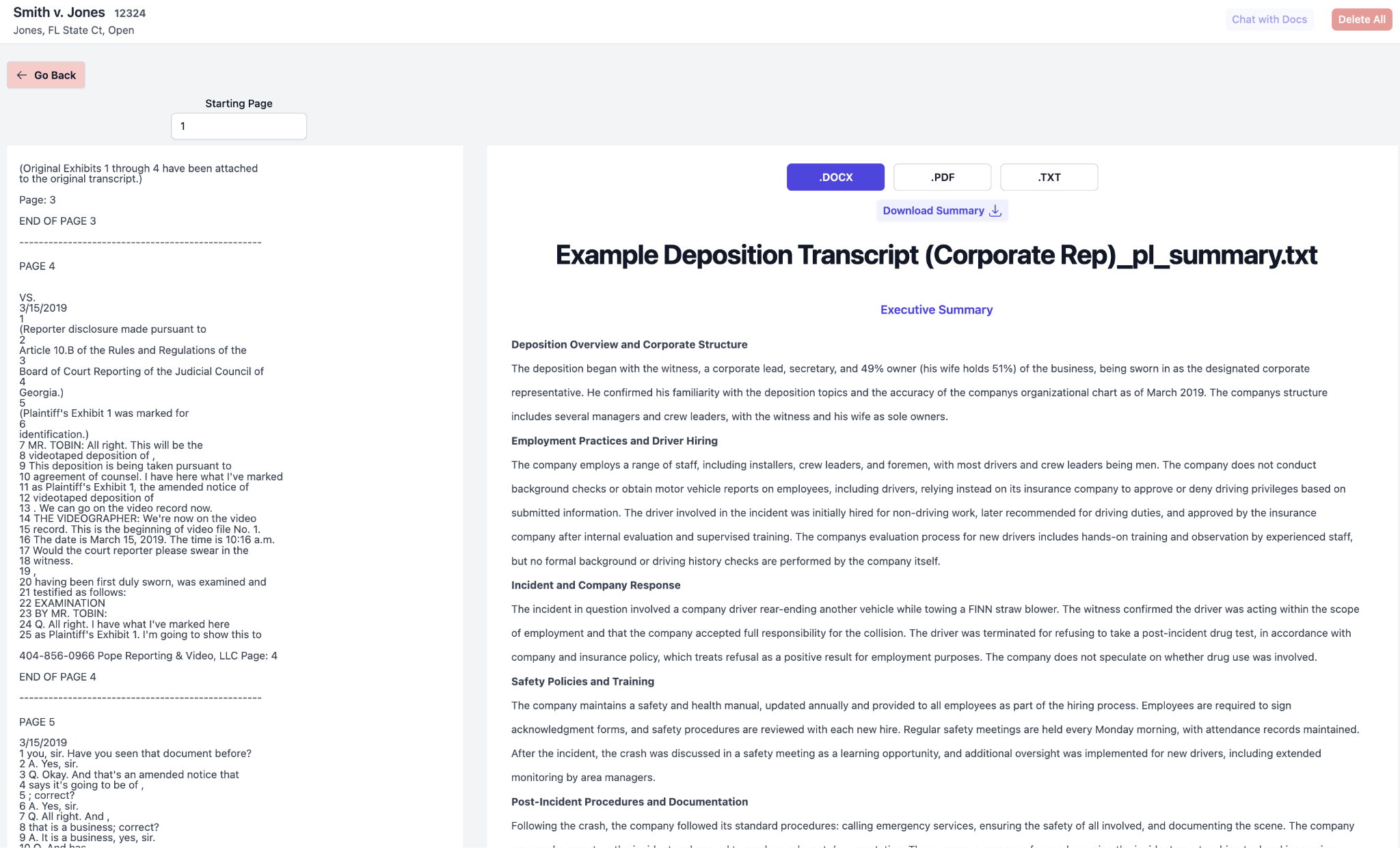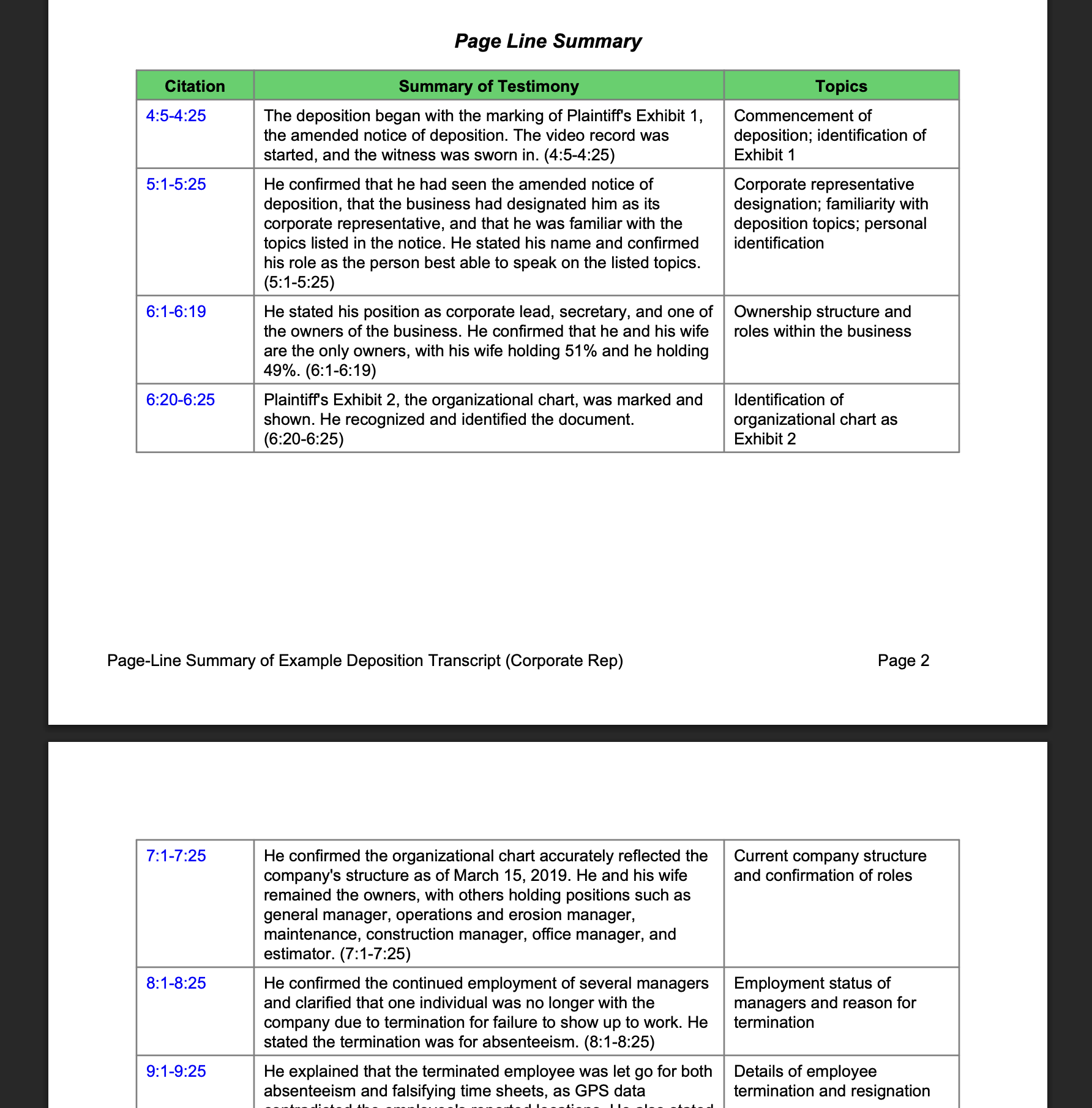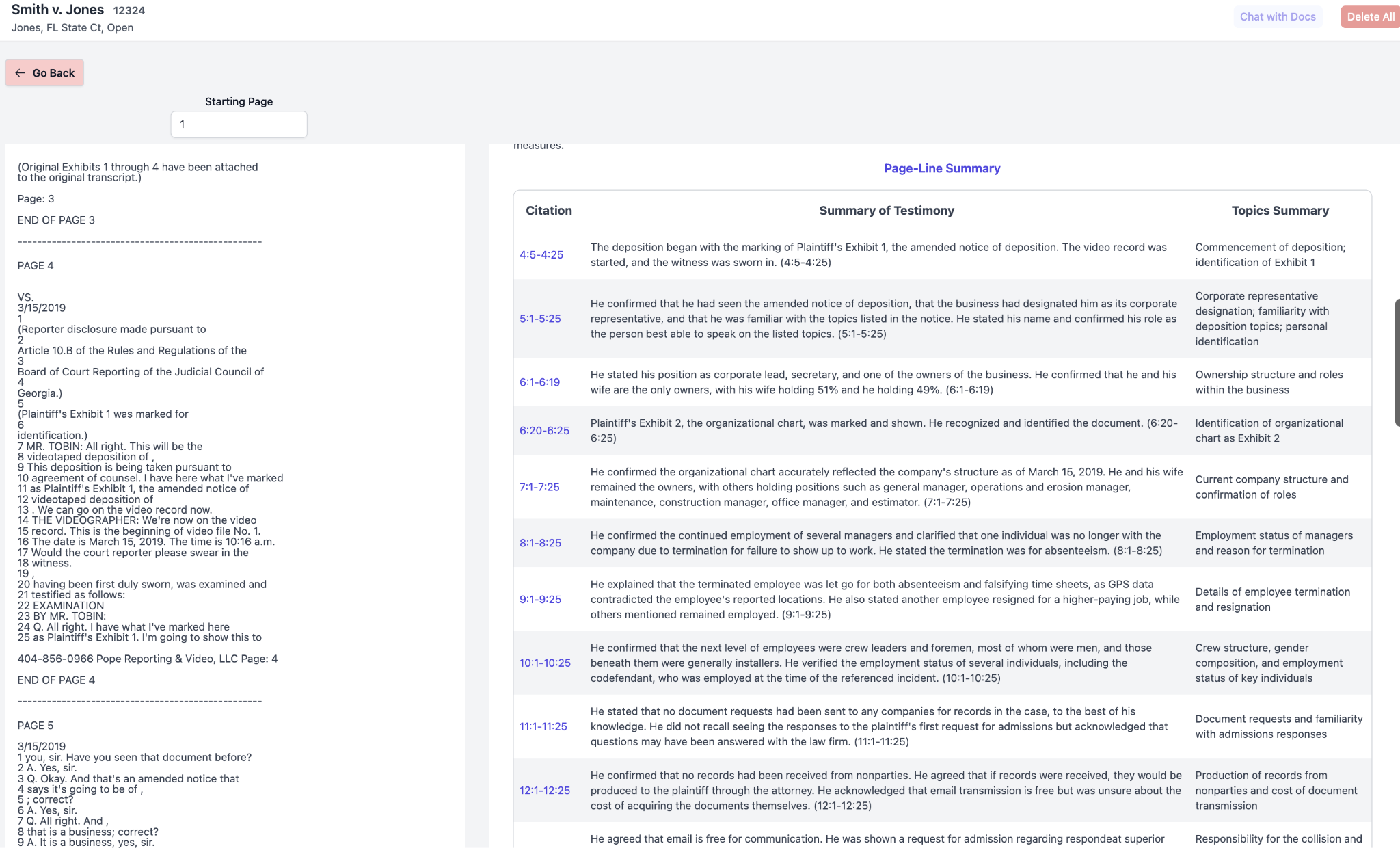When a case hinges on testimony, transcripts become both the backbone of discovery and the biggest drain on staff hours. Attorneys and paralegals often spend entire days combing through page after page, highlighting, cross-referencing, and pulling citations just to prepare for the next stage of litigation. What looks like a single “review task” on the calendar often balloons into a week’s worth of work, time that could be spent on strategy, depositions, or client advocacy.
The Hidden Cost of Manual Transcript Review
Every deposition transcript is hundreds of pages. For a mid-size litigation firm, reviewing even five depositions a month can translate into dozens of billable hours redirected to page-turning. Paralegals or associates must read every line, highlight testimony, and cross-reference citations.
The math adds up fast:
- Length of transcript: 250 pages
- Review speed: 2–3 minutes per page
- Staff hourly rate: $75–$150
That means a single deposition review can easily consume 8-12 hours, costing the firm over $1,000 in staff time. Multiplied across a litigation portfolio, firms lose entire weeks of productivity to transcripts alone.
Quick Cost Example You Can Calculate
Take your own caseload:
- Number of depositions per month × Average pages per transcript × Minutes per page ÷ 60 = Total hours lost.
- Total hours × Staff hourly rate = Monthly cost of transcript review.
Even conservative estimates reveal five-figure annual costs dedicated purely to manual review. These are hours not spent on strategy, client development, or courtroom preparation.
How Dodon.ai Speeds Review with Citations
Dodon.ai’s deposition summary software was built to reduce that waste. Instead of paging line-by-line:
- Upload the full transcript (PDF, scanned, or typed).

- The software surfaces testimony, events, and speaker exchanges automatically.
- Every excerpt includes page-line citations back to the transcript, ensuring accuracy and auditability.

- Search and filter instantly by witness, topic, or date, turning hours of reading into minutes of review.
By shifting transcript analysis into structured, searchable outputs, firms reclaim paralegal and associate time, reduce burnout, and prepare cases faster without sacrificing accuracy.
Why This Matters for Litigation Prep
Deposition testimony often anchors causation, damages, and credibility. Missing a line can change settlement leverage. But over-investing staff time erodes margins and slows case progression. Firms using Dodon.ai report cutting review time by 80–90%, while still working with documents that meet litigation prep standards.

Final Word
Transcript review doesn’t have to consume days of staff hours. With document automation technology like Dodon.ai, litigation teams surface the facts faster, keep every citation in view, and move from transcripts to case strategy in a fraction of the time.
Try Dodon.ai free for 7 days — upload your next transcript and see how much time you save.






